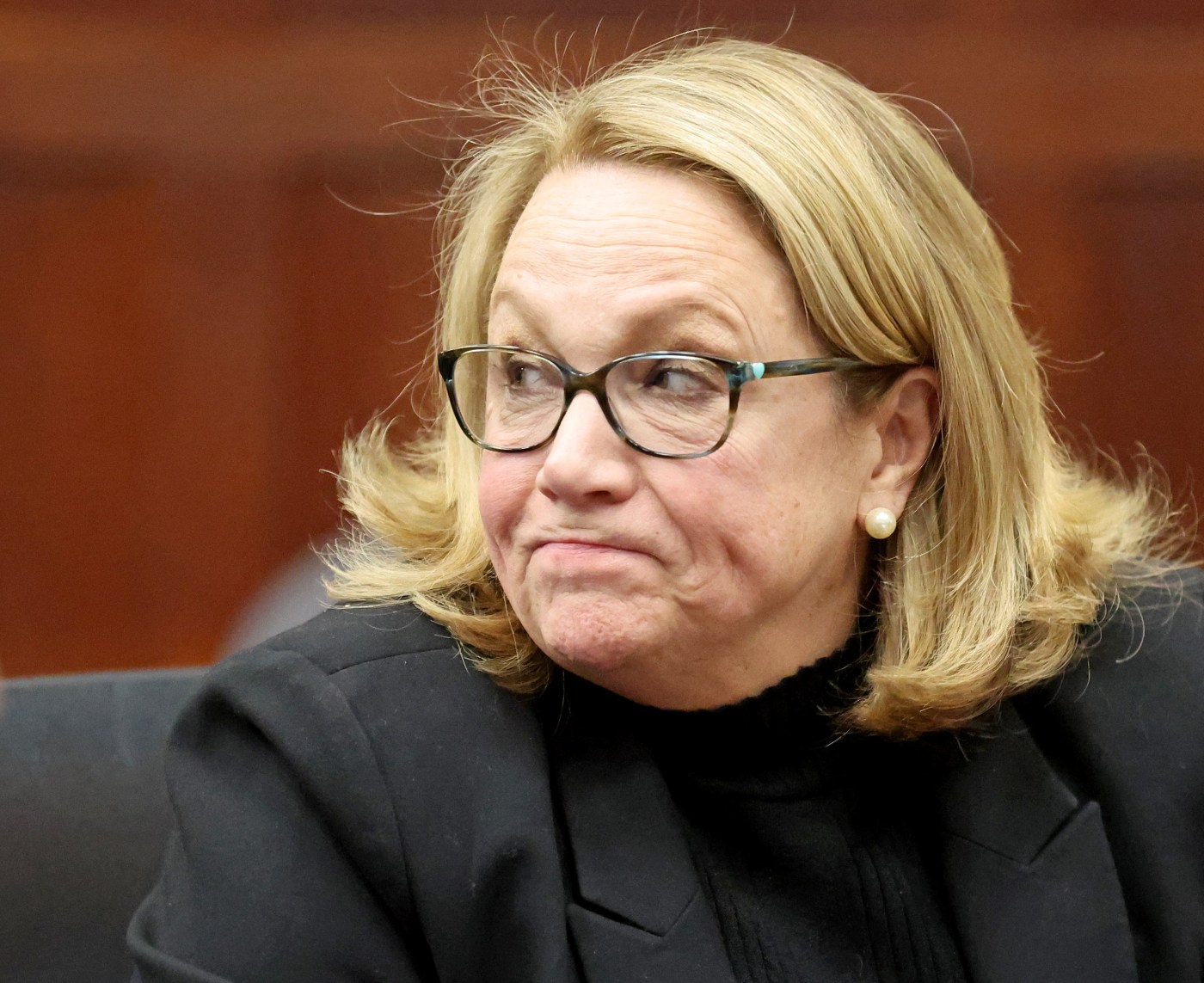
Judge clears way for hearing on top cannabis regulator Shannon O’Brien’s suspension
A Suffolk County Superior Court judge denied an attempt by suspended Cannabis Control Commission Chair Shannon O’Brien to adjust the format of a hearing that could end in her removal from the regulatory board.
The order, issued Friday by Judge Debra Squires-Lee, cleared the way for state Treasurer Deb Goldberg to hold a hearing on O’Brien’s fate at the Cannabis Control Commission, which has been in limbo for the past three months after Goldberg suspended O’Brien in part for alleged racist remarks.
In a 17-page ruling, Squires-Lee wrote that she does “not agree” with O’Brien’s claims that the suspended pot boss is entitled to a public hearing, compulsory attendance of witnesses, or a separate fact finder other than Goldberg.
“I am persuaded that the treasurer understands her obligations and has put together a protocol for the hearing that recognizes the importance of the decision to be made and affords O’Brien a full, fair, and meaningful opportunity to be heard consistent with the statute and her Constitutional rights,” Squires-Lee wrote in the ruling.
Squires-Lee’s ruling comes more than a week after lawyers for Goldberg and O’Brien sparred in court over the contours of the hearing on O’Brien’s suspension, which had temporarily been placed on hold by the judge.
Attorneys for O’Brien argued Goldberg was too tied up in the internal affairs of the commission and O’Brien’s removal to oversee the hearing, which the suspended pot boss pushed to be public.
But state lawyers said Goldberg was merely complying with state law governing the removal of a commissioner from the Cannabis Control Commission and any suggestions that the treasurer was biased were “unreasonable inferences.”
Andrew Napolitano, a spokesperson for the state treasurer’s office, said Goldberg is “very pleased with the court’s decision.”
“The treasurer is looking forward to having this meeting with Chair O’Brien,” Napolitano said in a statement.
An attorney for O’Brien did not immediately respond to a request for comment.
Goldberg provided O’Brien on Oct. 4 with a notice of two bases for her suspension after the commission and outside lawyers hired separate investigators to probe two areas of concern.
The results of an initial investigation found O’Brien allegedly made racially insensitive statements, including referring to Asian people as “yellow.” Those conclusions were provided to O’Brien, but the results of a second investigation concerning conduct and statements toward the commission’s executive director have not yet been issued.
A hearing on O’Brien’s suspension and potential removal from the commission can occur at least 15 business days after the results of the second investigation are issued and received, Squires-Lee wrote in her ruling.
“The public interest in this matter is high,” Squires-Lee wrote. “However, as the (Supreme Judicial Court) warned, political theater should be avoided. The hearing should be held as promptly as possible, and a decision rendered. If necessary, O’Brien can then seek certiorari review of the treasurer’s final decision.”
In court documents filed last week, state lawyers said a hearing would take place over several days in two four-hour blocks if necessary and the presiding officer will have the discretion to lengthen or limit the time.
An updated reason for O’Brien’s suspension would be provided at least 15 business days before the meeting rather than one week and all deadlines for O’Brien to submit information to the treasurer were revised from “one week” to five business days, according to court documents.
“The treasurer also will provide plaintiff with 15 business-days’ notice of any documents the treasurer will rely on in whole or in part at the meeting as well as any witnesses who will make oral or written statements at the meeting,” state attorneys wrote in a court filing.
Squires-Lee said she was not convinced by O’Brien’s arguments that Goldberg is too biased to oversee the proceedings.
“That Goldberg concluded, based on the information provided to her, that suspension with pay was warranted in advance of the statutory removal hearing does not make her too biased to fulfill her statutory role,” Squires-Lee wrote.
Squires-Lee also pointed to language in state law that allows the treasurer to remove a Cannabis Control Commission commissioner if they are guilty of malfeasance in the office, substantially neglect their duties, are unable to discharge their duties, commit “gross misconduct,” or are convicted of a felony.
State law requires the treasurer to provide a written “statement of reason” and an opportunity to be heard before a commissioner is removed from their position, the judge said in her ruling.
Squires-Lee said state law governing the removal of a commissioner “is clear on its face.”
“The treasurer has the authority to remove a commissioner she appointed. The treasurer may do so if she determines that one of the five bases exists, and, prior to removal, provides ‘a written statement of the reason for removal and an opportunity to be heard,’” Squires-Lee wrote. “Neither the precise context of the requisite notice nor the precise contours of the obligatory hearing are detailed in the statute.”


